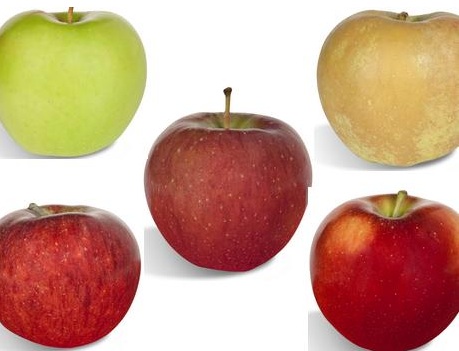
Features
Production
Research
New apple varieties unveiled at Interpoma
November 16, 2010 By Fruit & Vegetable
 November 9, 2010, Bolzano, Italy – At Interpoma, the international trade
November 9, 2010, Bolzano, Italy – At Interpoma, the international trade
fair devoted to apple growing, storage and marketing, the Consorzio Italiano
Vivaisti (CIV) has presented a new series of apple varieties.
November 9, 2010, Bolzano, Italy – At Interpoma, the international trade
fair devoted to apple growing, storage and marketing, the Consorzio Italiano
Vivaisti (CIV) has presented a new series of apple varieties.
The five new varieties – given the names Gaia, Gemini, Renoir, Smeralda
and Fujion – have successfully passed the experimental stage, which included
extensive panel tests involving consumers, and are ready for marketing.
 |
|
The prime goal for the CIV centre’s research program is to find
varieties with the kind of pleasurable and intense taste that satisfies market
demand. In addition, these varieties all have a strong resistance to scab, the
fungal disease that hits more orchards than any other in the world.
“Consorzio Italiano Vivaisti orientated its research activities towards
developing resistant varieties which respect the environment, require little
energy expenditure, and are economically sustainable,” said CIV president Mauro
Grossi. “We were well aware that growers want apple trees that are efficient
and easy to care for. We also made the long-term decision in choosing to focus
on sweet-tasting varieties, correctly anticipating market trends.
“These latest varieties will not be managed using a club system,” added
Grossi. “We are open to considering and setting up all kinds of collaborative
arrangements for their productive and commercial development. By next season we
will have sufficient yield to carry out the first market testing.”
“The varieties we’re
presenting now are the result of many years of research,” said Michelangelo
Leis, CIV breeder. “They are genetically new, not mutations of other varieties.
What makes them special is the fact that they are simultaneously resistant to
scab and also sweet-tasting. And so far, in storage tests, we have not come
across any particular vulnerability to disease.
“Compared to standard varieties, these trees are precocious in bearing
fruit and generous and constant in their fruit yield. They’re also extremely
simple to care for, thanks to the tree’s characteristics: their open branching
system, short or naturally flexible branches (which in the case of Renoir are
also self-thinning) and the consequent ease of harvesting… these are all
features which, in addition to their resistance to scab, imply much less effort
for the grower, much less energy consumption and, in a word, much lower
all-round environmental impact.”
Print this page